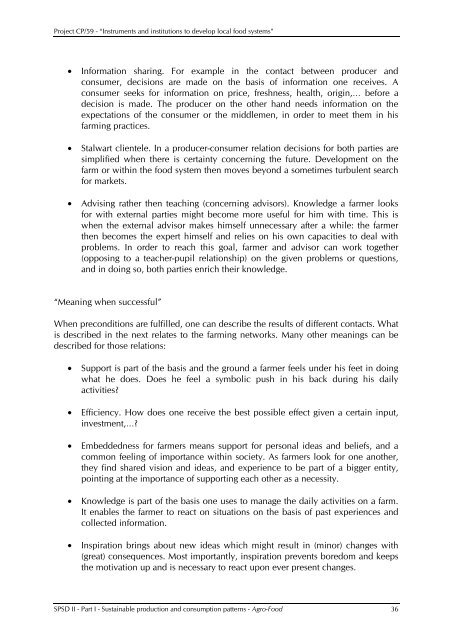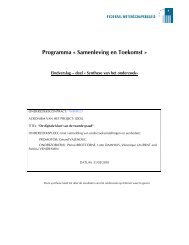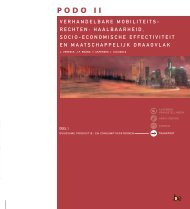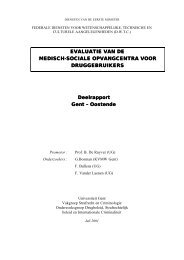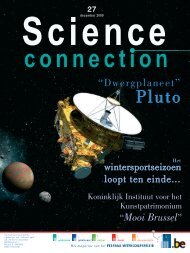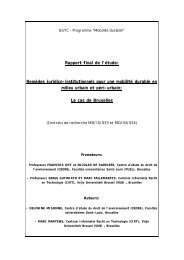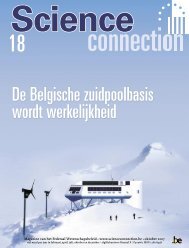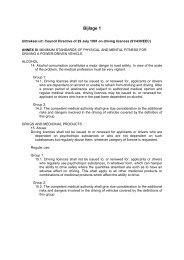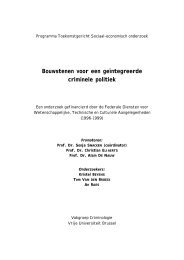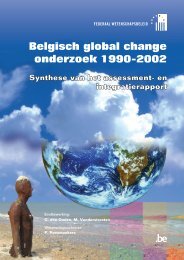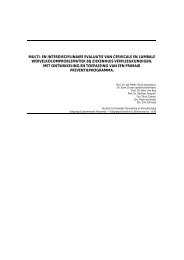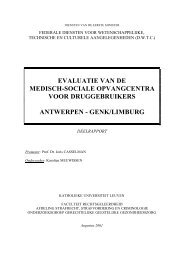chapter 3 inventory of local food systems
chapter 3 inventory of local food systems
chapter 3 inventory of local food systems
You also want an ePaper? Increase the reach of your titles
YUMPU automatically turns print PDFs into web optimized ePapers that Google loves.
Project CP/59 - “Instruments and institutions to develop <strong>local</strong> <strong>food</strong> <strong>systems</strong>”<br />
• Information sharing. For example in the contact between producer and<br />
consumer, decisions are made on the basis <strong>of</strong> information one receives. A<br />
consumer seeks for information on price, freshness, health, origin,… before a<br />
decision is made. The producer on the other hand needs information on the<br />
expectations <strong>of</strong> the consumer or the middlemen, in order to meet them in his<br />
farming practices.<br />
• Stalwart clientele. In a producer-consumer relation decisions for both parties are<br />
simplified when there is certainty concerning the future. Development on the<br />
farm or within the <strong>food</strong> system then moves beyond a sometimes turbulent search<br />
for markets.<br />
• Advising rather then teaching (concerning advisors). Knowledge a farmer looks<br />
for with external parties might become more useful for him with time. This is<br />
when the external advisor makes himself unnecessary after a while: the farmer<br />
then becomes the expert himself and relies on his own capacities to deal with<br />
problems. In order to reach this goal, farmer and advisor can work together<br />
(opposing to a teacher-pupil relationship) on the given problems or questions,<br />
and in doing so, both parties enrich their knowledge.<br />
“Meaning when successful”<br />
When preconditions are fulfilled, one can describe the results <strong>of</strong> different contacts. What<br />
is described in the next relates to the farming networks. Many other meanings can be<br />
described for those relations:<br />
• Support is part <strong>of</strong> the basis and the ground a farmer feels under his feet in doing<br />
what he does. Does he feel a symbolic push in his back during his daily<br />
activities?<br />
• Efficiency. How does one receive the best possible effect given a certain input,<br />
investment,…?<br />
• Embeddedness for farmers means support for personal ideas and beliefs, and a<br />
common feeling <strong>of</strong> importance within society. As farmers look for one another,<br />
they find shared vision and ideas, and experience to be part <strong>of</strong> a bigger entity,<br />
pointing at the importance <strong>of</strong> supporting each other as a necessity.<br />
• Knowledge is part <strong>of</strong> the basis one uses to manage the daily activities on a farm.<br />
It enables the farmer to react on situations on the basis <strong>of</strong> past experiences and<br />
collected information.<br />
• Inspiration brings about new ideas which might result in (minor) changes with<br />
(great) consequences. Most importantly, inspiration prevents boredom and keeps<br />
the motivation up and is necessary to react upon ever present changes.<br />
SPSD II - Part I - Sustainable production and consumption patterns - Agro-Food 36


